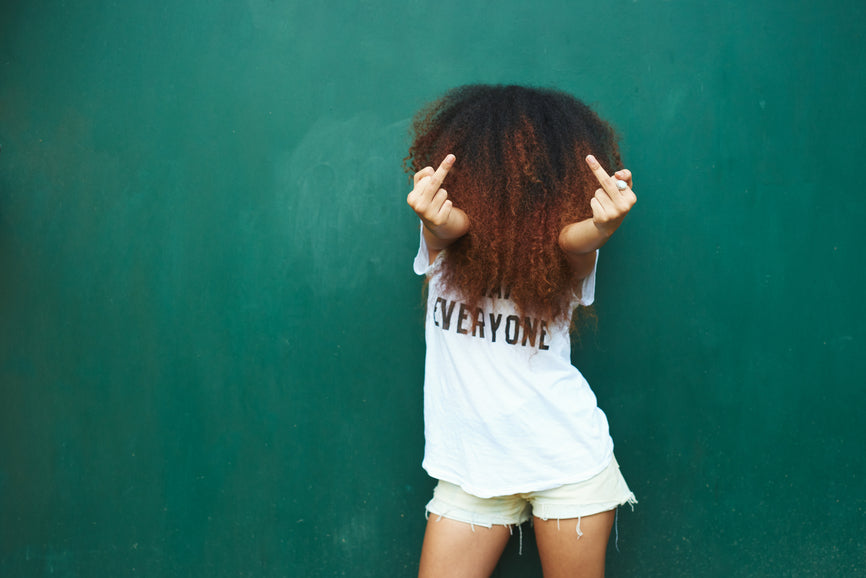Last month, I went to a women’s-only Galentine’s Day brunch to drink champagne, eat my weight in sugar, and enjoy the company of a bunch of other rad women. I recently relocated to Philadelphia, so I’d been in the market for some genuine female friendships, and the brunch filled that void. Through and through, it was a positive, supportive environment (the hostesses even made us all say one nice thing about each person in the room.)
Sounds lovely, no? But the truth is, there was a version of me in my not-too-distant past that would have rolled her eyes at an invitation to something like this. Instead of looking at the brunch as an opportunity to make new friends, deepen relationships, and foster community, young Lindsay would’ve scoffed at the invite and declined the invitation, citing that all-too-common phrase among young women: “I just don’t get along with other girls.”
We’ve all heard it before. It’s the thing all “cool girls” like to say, to proclaim they’re not like other girls—that they’re too laidback and drama-free. For a long time, I was under the impression that this was, in fact, cool. Until it wasn’t. As I got older, I started to form lasting female friendships. As I got older, I started to understand that feminism is about inclusion and supporting other women. I started to understand that it’s not necessarily “girls,” but the way we’ve been conditioned to think of the word.
“We’ve all heard it before. It’s the thing all “cool girls” like to say, to proclaim they’re not like other girls—that they’re too laidback and drama-free.”
Growing up, I didn’t like the stereotypical “girly” things. I hated sleepovers, crafts, romantic movies, the color pink, gossiping about boys—basically, everything we’re taught to associate with growing up as a girl in our society. And so in an ill-informed act of rebellion, I projected my distaste for these gendered interests on the whole gender. So began my crusade against female friendships.
I spent years trying to fit into the male pack, starting as early as the playground. While girls my age were playing house, I was acting out my favorite scenes from Teenage Mutant Ninja Turtles with the guys. My childhood best friend was male and I remember seething with jealousy when he showed me the soap bar he carved into a clover with a knife. Those kinds of activities were not in the Girl Scouts syllabus!
As I moved through school, I continued to form close relationships with men and brushed any budding friendships with girls aside. But even if it wasn’t something I could articulate at the time, looking back, there was something palpable missing; something I would only recognize years later as a down-to-the-core support and understanding that comes with being part of a sisterhood. Over time, I started to realize there are women out there like me, and yet I wasn’t willing to find them. It wasn’t that I didn’t like other girls; it was that I didn’t tryto like them. And what a mistake that was.
I value my male friends deeply. But at the end of the day, there’s just no replacement for the mutual understanding between you and your girlfriends of what it’s like to be a woman: what it’s like to be in a woman’s body, the uphill battle of fighting the patriarchy, facing sexual harassment on the reg, fun things like UTIs. Men—particularly heterosexual, cisgender men—have no way to fully understand these things.
“Bless the ones that try to empathize and listen, but even still, there will never not be a disconnect.”
Looking back, I feel a strange mix of embarrassment, freedom and love. The woman I now call my best friend is someone who has been by my side for more than 20 years despite this regrettable phase (as well as many other awkward phases). Learning to cherish my relationships with women has ultimately made our years-long friendship stronger, and I have to fight the impulse to crawl into a dark hole when I think of the times I turned my back on her in our teens and early 20s. But I can’t dwell on who I used to be. Instead, I’ve been working on building relationships with women that I am ferociously protective of.
As a society, we’ve still got a long way in deprogramming ourselves to associate the negative connotations of words like “catty,” “dramatic,” “emotional,” and “bossy” (to name just a few) with women. But take it from someone who once bought into the bullshit: We can’t keep moving forward unless it’s together. Onward we go.



